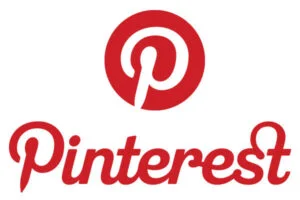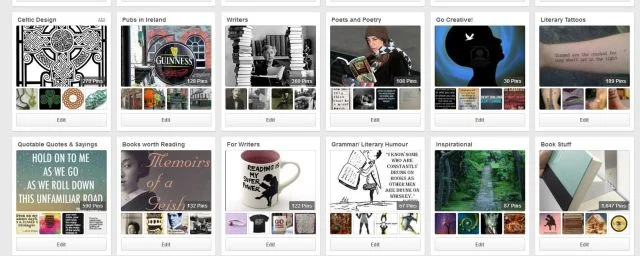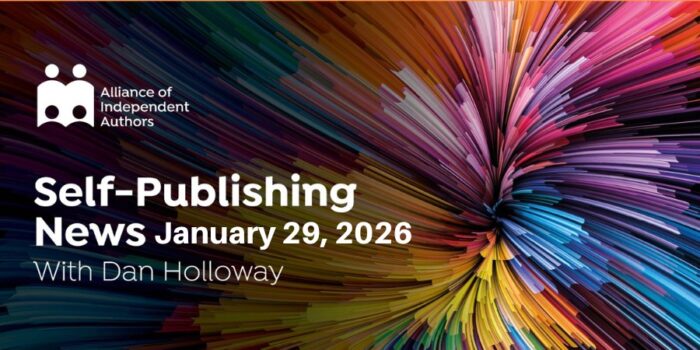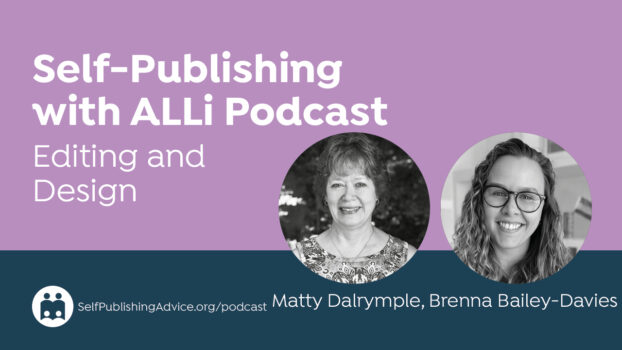Ask every self-published writer what they want more than anything else and they will tell you that they want to sell their books. ALLi's Social Media Manager Karen Lotter describes five ways that Pinterest can help authors not only sell more books but plan and write them too.
What is Pinterest and does it Really Work for Authors?
 In the social media world. Facebook and Twitter were always the big ones until the image-based platforms came along. Pinterest seemed to pop up from nowhere and just spill over into every sphere. Before we realised it, we were all pinning, because it was such fun.
In the social media world. Facebook and Twitter were always the big ones until the image-based platforms came along. Pinterest seemed to pop up from nowhere and just spill over into every sphere. Before we realised it, we were all pinning, because it was such fun.
For those who still don’t know, Pinterest is like an online bulletin board that has mated with a social media interface. Think of a series of corkboards hanging on your wall. Each corkboard has a theme that you choose and curate. Members can create multiple boards of almost any topic under the sun and collect “pin” as many lists, pictures, videos, and links as they desire.
They can also share their boards, and allow their pins to be repined by others. This is why it has so much potential to be used as a very potent tool for authors to promote their books.
Smart Pinning Rules and Regs
- Create concise descriptions of each pin, using hashtags, keywords, links, etc
- Remember to pin your book covers from sites where the book can actually be purchased
- If you want to get really serious about it, tag every book cover pin with genre, author, and title information.
Plan Your Book on Pinterest
If you're writing a book, use Pinterest for planning. Authors can easily create a board for characters, settings and plots – in fact whatever they are researching for their novel. Pin interesting images for characters. Pin up beautiful places might that could be used for your settings. For plot, repin images of events. Are your characters getting married? One thing you’ll find plenty of on Pinterest is weddings! Historical fiction writers who need detail for the descriptions – this is the perfect place to gather objects, photos, furniture, etc all on one board.
Pinterest Collaboration – Indie Authors Member Books
On Orna Ross’s Pinterest there is a communal board for ALLi Authors where they can pin their own covers and also those of others: http://www.pinterest.com/ornaross/alliance-of-indie-authors-members-books/
Pinterest is great for collaboration with other writers. If you've got some partner writers out there, or you belong to a group like ALLi, give them access to some of your boards for collaboration. You know, you can also let beta readers and editors in on the action – it makes for a more shared experience. All you need to do to be able to pin together is to follow each other. (Then let the person who owns the board know and he/she will add you to the names board).
Create a Blog Pinboard
Depending on what you post on your blog and how you illustrate it, you could do well with pinning some photos from your blog. Either create a board for them of just pin them to an assortment of boards with really good captions. Anyone who has been on Pinterest for a while will be able to tell you that what is needed are eye-catching images. People will click through to see where they originated.
Create Boards in a Theme Around your Writing
If you write science fiction, for example, create some boards that have to do with science fiction – remember you want to draw like-minded people to you – people who may be interested to buy and read your books. It is not hard to create a theme park of boards to engage people who may like you and your books.
Make your Pinterest about You
This ties in a bit with the previous point. Authors should try to pin in a personal manner. Remember you want to connect with your readers, so set up your Pinterest platform with as much detail as you can, including your website and a great photo.
Make your boards about you and things that you find interesting. The more your fans connect with you on a personal level, the more they will make an effort to follow you and promote you. Do you like chocolate, cupcakes, seventies music? Well share it with your readers. Don’t try to market to them.Tell them about new releases, launches appearances, but don’t push it.
Pinterest is fun, it is huge and can also be very effective for authors. It is a great way to create the much-needed engagement with readers, so get pinning!







[…] Blogger G decides that he wants to write a post about using Pinterest to market your self-published book. Using his trusty Internet search engine, he finds a lovely snippet on a reputable website that lists three short tips for using Pinterest […]
[…] to ALLi, Pinterest is great for collaborating with other authors and even blogging. The Future of Ink wrote […]
[…] to ALLi, Pinterest is great for collaborating with other authors and even blogging. The Future of Ink wrote […]
Magnificent items froom you, man. I have bear in mind your stuff prior
to and you are simply too magnificent. I really like what you’ve received here,
really like what you are sayiong annd the way in which you assert it.
You make it enjoyable and you still take care of tto keep itt wise.
I can’t wait to learn much more from you.
That iss actually a tremendous site.
Pretty percentage of content. I merely became aware of the blog page and in accession cash to express that I get truly loved account your current weblog content. Anyway We will be registering to ones provides nourishment to or simply I personally success you access continuously swiftly.
A great article regarding the use of Pinterest, I’ve been trying to get to grips with it recently and this has inspired me to crack back on with it!!
Thanks again, Josh at http://www.jdandj.com
Thanks for these tips, Karen! Here’s something I just learned: watermark your images by superimposing the image on a copyright/logo page. Then fade the bottom layer (logo/copyright) so it doesn’t totally obscure the photo/image/illustration. Good luck to all!
William, I know some people are paranoid about Pinterest. By the way I do advocate pinning from the original source.
I have heard all these arguments before. I also take photos and have had people steal them, now I’ve put a Creative Commons license on them and people ask me if they can use the pics and they credit me.
Don’t put anything precious on the Web! It is as simple as that. Use the Web, post pictures that you want people to share. Caption them and hashtag them and a whole lot of them will drive good traffic to your own website.
Why worry about theft and copyright and things you cannot control? – Control what you can – that is what you post on the web and how you label it.
(Pinterest don’t take the copyright of anything that is pinned to its boards).
I am going to plan and post using this method and hopefully attract some interest in my new Sci Fi novel. Thank you very much. I updated the connection to my blog today including an addition at the bottom of the page that describes how something I saw on a trip sprouted wings in my book in progress. http://www.michaeljamesgallagherauthor.com/visual-story-architecture-tango-paradigm-shifting-technology-nanofoglets/
You realize that uploading an image to Pinterest assume you have the copyright to the image and that you give many of those rights to Pinterest–Pinterest makes a permanent copy to their servers, they are not simply linking back to the original source. If you take an image from the internet, from a Google search or a web site, you don’t actually have the copyright. While the legality of what Pinterest has been doing has not to my knowledge been tested in the courts, it looks like a huge copyright grab that put the person doing the pinning completely liable. Or to put in another way, if you pin something to your board and you do not have permission from the copyright holder, you could be sued for copyright infringement.
There is so much about copyright that has not been tested on the internet. For example, if you bought art for your cover, you should have an agreement that you can use your art for publicity. But since Pinterest take the copyright when you pin, does your agreement cover the transfer of copyright to third parties? You are probably not going to have a problem, but if someone wants to cause problems, not that there are such people in the world, then this become at least a distraction.
I am a photographer and author of photography books and so these issues maybe more important to me. Unfortunately, knowledge of copyright laws are not very great. Blogger have been sued and lost for post random images on their site. Pinterest is no different. Fair use is a weak argument, particularly for a site promoting a business. If you are an author and promoting your work, you are a business.
Now, as a photographer, I know the legal arguments as the ones people really care about. But when you take someones work without permission, you are stealing. Pinning is no different. It is actually worse as you are guaranteeing to Pinterest you have the copyright permission and you can transfer the copyright to them. You have also allowed other on Pinterest to repin an image and share copyright. Creative people work hard. Don’t steal.
[…] Ways Pinterest Helps Indie Authors […]
I wrote this quite a while ago – I hope it will help you Claire. I keep three sets of my photos – the original ones – the large ones and then the small ones.
https://selfpublishingadvice.org/resize-your-images/
Here are two posts that can help with copyright questions you may have. I personally don’t really see any issues if you pin thoughtfully. Because you are never removing the image from the website – it always leads back to the original site.
If you caption and credit and hashtag it well, I cannot see who would really have an issue with it.
And Michael – if you’re thinking of picture based research wait till you get to Pinterest – you can search there too – you will be dazzled and astonished at the pictures on their already.
http://mashable.com/2012/03/21/pinterest-copyright-legal-issues/
http://www.washingtonpost.com/business/technology/pinterest-addresses-copyright-concerns/2012/03/15/gIQAijAFES_story.html
Clare – what do you think people will do with your photos to misuse them? First of all I’m sure you post low resolution and smaller photos, maybe 640 x 480 on your blog. This means that even if people “steal” them they can only really use them on the web.
Your photos, with good keyword rich captions are a great asset to you to pin.
As for Time – that is a personal thing – I guess we all struggle with time management and wish we could stitch in a few more hours in a day.
If you Follow me Karen Lotter I’ll follow you back and help you by repinning. Also Follow Orna Ross. If you want to pin on the communal board.
Karen, re people using my photos: one unfortunate incident when someone slid one off a website we run, and published it on their blog giving the names of the 2 people in it – I never put names, and this publicised those people (in their workplace) without their permission. (It was some years ago – I tend to never put up people unless firsts have permission nowadays). The person concerned argued that “anything on the web is in the public domain and nobody can claim to own it”. This is probably true – back then, pre social media, it had not been thought through.
Actually, my blog photos are high resolution – is this unwise/unusual? I don’t have a smart phone, they’re digital camera pics put through Export, and I may be using the same ones to print cards, which I sell. Looks loike shd be using different ones for each purpose?
This has real potential Karen. I like it as planning for stories and attracting readers. I tried my first here; Any suggestions? http://www.pinterest.com/tsunamimichael/architecture-of-a-story/
>>>The person concerned argued that “anything on the web is in the public domain and nobody can claim to own it”. This is probably true – back then, pre social media, it had not been thought through.<<<
That has 'never' been true. The original creator owns the copyright by law with, or without, any notice of any kind. You do however have move to defend your copyrights if you intend prevail in a court. Images need to be 'registered" in order to get the full advantage of the copyright laws.
Putting your HD images on line at full resolution without any safeguards is a bad move and invites infringement. Better to re-save the image in stepped down resolution if you are going to put it online. Low quality images {around 72 pixels} will break up badly when enlarged… so keep the resolution low and the file size {display size} as low as you can.
If you are selling the images commercially you simply must protect yourself. Images can have digital watermarks inserted in to the image that are detectable by special scans and are prima facie evidence of misuse or infringement in the case of an unauthorized use of your work.
Thom
Many thanks for this. I find myself, having begun as computer-savvy when it was all new (1990s) trailing as increasing interactions/technology have become commonplace in virtual-land. Had not known about the high resolution thing, but of course makes sense.
Even more daft is something I avoid: putting loads of family pics on Facebook: many grandparents indulge in this one.
If you get the image from a Google search, the pin will not link back to the original site. Also, Pinterest is making a copy to their servers and taking copyright of the image–it is the pinner’s responsibility to get copyright permission and by pinning you are saying you have that making you liable.
Nice ideas… however… can I have a small moan?
Most photos (almost all) I use on my blog/for my writing are my own and I’m not yet quite happy with sharing them with all comers… since all comers can include people who will mis-use…
Also, TIME! When does one do these things? Am up to my eyes in editing & re-writes, do ANY other writers find time a problem? It’s not that I want to watchTV, go to movies, party, or take a holiday – I need time away from the computer for being human, going for a walk, cooking meals, seeing friends, caring for the cats!
HOW do others manage?!
You’re lucky you write so much that you miss the other stuff. I’ve got the opposite difficulty. I do to much of the other things and don’t sit down to write nearly enough. As for the finding time I could see that Pinterest thing contributing to long term marketing goals and developing readers from an early stage. I don’t have readers yet and no one is going to publish my work and sometimes I think that the marketing element is more important than the writing. If the marketing doesn’t get readers it doesn’t matter how much you write.
I relly like this idea. I am just curious though. Most of the photo-based research I do involves pictures to which I have no rights found through google search. I use them to stimulate development of settings and people. These pics would be not kosher to post on pinterest. How would you get around this severe restriction of choice and still keep it lively and visually bright?
Excellent article, Karen. Thanks for the helpful and useful information. Lots of good tips here.
Karen, I love Pinterest! Thank you for this article. I’ll be more descriptive with my tagging in the future. Great tips. Here’s me, by the way – http://www.pinterest.com/writernbt/ Happy Pinning!